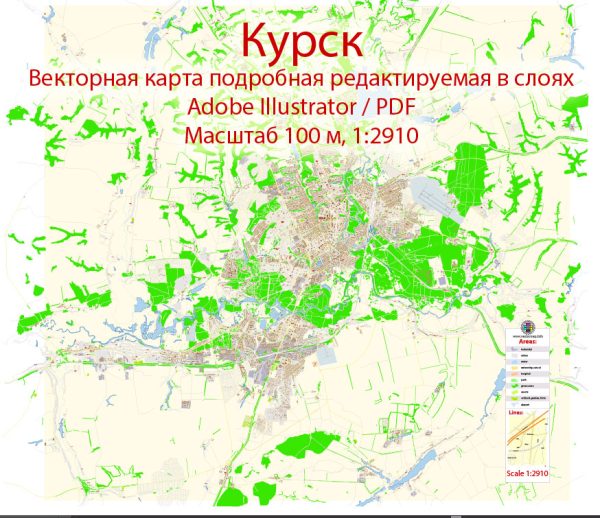Kursk is a city located in the western part of Russia, specifically in the Kursk Oblast, which is situated in the western central part of the country. Here is a detailed description of Kursk:
Geography: Kursk is positioned on the Seym River, a tributary of the Desna River, and it lies about 530 kilometers southwest of Moscow. The city is known for its relatively flat terrain, with the landscape being dominated by plains and agricultural fields.
History: Kursk has a rich history that dates back to the 11th century when it was founded. The city played a significant role in various historical events, including battles during World War II, most notably the Battle of Kursk in 1943, which was one of the largest tank battles in history.
Economy: The economy of Kursk is diverse, with agriculture, industry, and commerce playing important roles. The region is known for its fertile soil, contributing to a strong agricultural sector. Industries such as metalworking, machinery, and food processing are also prevalent.
Culture: Kursk has a vibrant cultural scene with various museums, theaters, and art galleries. The city is home to historical sites, including churches, cathedrals, and monuments that showcase its rich heritage. The Kursk State Regional Museum, for example, is known for its extensive collection of artifacts related to the history of the region.
Landmarks: One of the most notable landmarks in Kursk is the Kursk Magnetic Anomaly, an area with high levels of iron ore. The city is also known for its churches and cathedrals, such as the Cathedral of St. George and the Znamensky Cathedral, both of which are architectural gems.
Education: Kursk is home to several educational institutions, including Kursk State Medical University, which is well-regarded for its medical programs. The city has a strong focus on education, contributing to the intellectual and cultural development of the region.
Transportation: The city is well-connected by road and rail, making it accessible for both domestic and international travelers. The Kursk Vostochny Airport provides air travel options for those coming to and from the city.
Climate: Kursk experiences a temperate continental climate, with distinct seasons. Winters are cold with temperatures often dropping below freezing, while summers are warm and can sometimes be hot. Spring and autumn are transitional seasons with moderate temperatures.
In summary, Kursk is a city with a deep historical significance, a diverse economy, and a rich cultural heritage. Its strategic location, coupled with its economic and cultural contributions, makes it an important center in the Kursk Oblast and the broader region of western Russia.
Vectormap.Net provide you with the most accurate and up-to-date vector maps in Adobe Illustrator, PDF and other formats, designed for editing and printing. Please read the vector map descriptions carefully.


 Author: Kirill Shrayber, Ph.D. FRGS
Author: Kirill Shrayber, Ph.D. FRGS